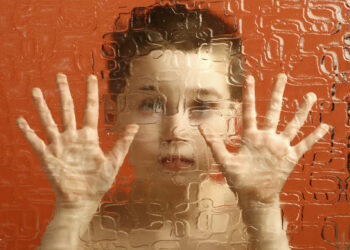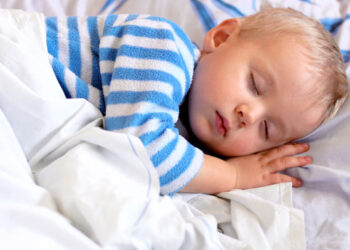Whooping Cough
Whooping cough (also known as pertussis) is a bacterial infection that causes bouts of coughing in children. It is of particular concern in very young babies who have not been immunised. Typically the child will present with bouts of coughing where there is a run of several sustained coughs followed by a large intake of air during which the characteristic “whoop” can be heard. Very young babies may not have this whoop and may instead present with spells of not breathing where a colour change may be noticed on their lips and face. Sometimes babies will be seen to vomit at the end of a bout of coughing.
Is it infectious?
Yes, whooping cough is an infectious disease which is on the increase. There has been a five fold increase in cases since 2000.
Whooping cough is divided into 3 stages:
- Catarrhal stage – The catarrhal stage appears similar to a viral upper respiratory infection with mild cough and coryza. Fever is uncommon,if present, it is usually low grade. The cough in whooping cough gradually increases instead of improving and the nasal secretions remains watery. This stage lasts up to 2 weeks.
2. Paroxysmal stage – During the paroxysmal stage, coughing spells increase in severity. The paroxysmal cough is distinctive: a long series of coughs one after another. The child may become blue , and appear to be struggling for breath. Sweating episodes may occur between bouts of coughing. The coughing is usually worse at night.
The whoop, or noise made by the forced inspiratory effort that follows the coughing attack , is not always present but in combination with other clinical symptoms a presumed diagnosis can usually be made before laboratory tests are available.
Even immunised children can get whooping cough although currently we are seeing children around 3 months of age who may have received only their first vaccinations presenting with whooping cough.
The paroxysmal stage may last for two to eight weeks. The coughing spells increase in frequency during the first one to two weeks, remain at the same intensity for two to three weeks, and decrease gradually thereafter.
3. Convalescent stage – During the convalescent stage, the cough subsides over several weeks to months. Studies have shown that the median duration of coughing can be over 100 days (around 4 months).
How can I prevent my child from getting whooping cough?
Immunisation is the only way of protecting your child from getting whooping cough. Immunisations are offered at 2,3 & 4 months of age. Immunisations are now also recommended for pregnant women between 28 and 38 weeks of pregnancy.
The following link gives the advice that is offered to parents from the NHS and also discusses the vaccination that is offered to pregnant women.
How long does the cough last?
Whooping cough used to be called the 100 day cough because of the length of time that symptoms can persist.
Is there any treatment?
Patients are usually prescribed a course of antibiotics (eg erythromycin). This serves to reduce the infectivity of the illness and therefore help reduce transmission to other children.
Signs and symptoms
The disease goes through 3 different phases.
- Catarrhal stage – The catarrhal stage appears similar to a viral upper respiratory infection with mild cough and coryza. Fever is uncommon,if present, it is usually low grade. The cough in whooping cough gradually increases instead of improving and the nasal secretions remains watery. This stage lasts up to 2 weeks.
2. Paroxysmal stage – During the paroxysmal stage, coughing spells increase in severity. The paroxysmal cough is distinctive: a long series of coughs one after another. The child may become blue , and appear to be struggling for breath. Sweating episodes may occur between bouts of coughing. The coughing is usually worse at night.
The whoop, or noise made by the forced inspiratory effort that follows the coughing attack , is not always present but in combination with other clinical symptoms a presumed diagnosis can usually be made before laboratory tests are available.
Even immunised children can get whooping cough although currently we are seeing children around 3 months of age who may have received only their first vaccinations presenting with whooping cough.
The paroxysmal stage may last for two to eight weeks. The coughing spells increase in frequency during the first one to two weeks, remain at the same intensity for two to three weeks, and decrease gradually thereafter.
3. Convalescent stage – During the convalescent stage, the cough subsides over several weeks to months. Studies have shown that the median duration of coughing can be over 100 days (around 4 months).
The following video from the Mayo clinic shows a typical baby with this condition:
Treatment
Treatment is largely supportive, ensuring that the child receives sufficient fluid or feed and, if in hospital, that the levels of oxygen in the blood are adequate.
Antibiotics are sometimes given to reduce the risk of transmitting the condition to other babies.
The baby should be regarded as being potentially infectious until 5 days after completing the course of antibiotics.
If Antibiotics have not been given, the baby will remain potentially infectious until the end of the 3rd week of the coughing phase.
Immunisation
Vaccination is very effective and offers 80-90% protection until between 3 and 6 years of age when it’s effectiveness begins to wane.
The current UK vaccination program includes vaccinating against pertussis at 2, 3 and 4 months of age.
Pregnancy advice
Because of the recent increase in cases of pertussis, pregnant women between 28 and 38 weeks of pregnancy are now recommended to receive pertussis vaccination. The vaccine, called Repevax, will allow you to pass immunity across the placenta to your baby and thus help protect your baby from whooping cough.
Complications
Whooping cough can have serious consequences and vaccination is therefore strongly recommended. The mortality rate is around 1%.



